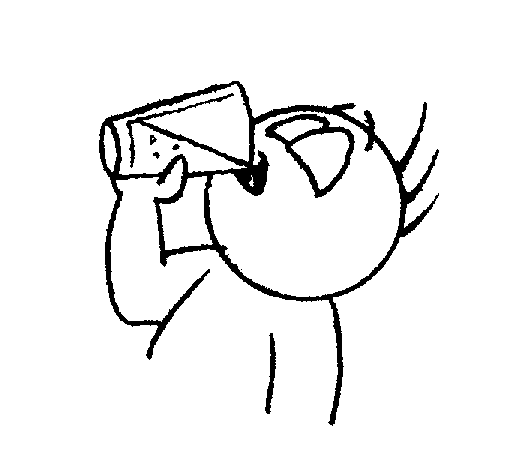AliLand
Newbie
Despite a good university education in addition to pedantic teachers throughout high school, I was never taught English grammar.
My first day teaching Greek kids English had me running home to read book after book of grammar rules
Nowadays, I teach proficiency. This means 'approaching the level of an educated native speaker'. This is of course a joke, as native speakers do not learn their own grammar. I usually teach writing and speaking, but obviously grammatical mistakes need dealing with. While I believe that language is a tool, thus if the meaning is understood it has done its job, it is still important to aim to use it properly. I rarely tell students usage in incorrect, more often describing 'poor' grammar as unnatural, awkward, confusing or ambiguous. Fortunately the essay skills I teach are very formal, so its a bit easier for me.
My pet hates:
1) gonna and wanna are not real words. Try explaining this to foreign teenagers, they assume I have a poor vocabulary or that I'm being overly pedantic as they see and hear words like this everywhere.
2) comers. When you mark around 20 essays a day with and average of six comers between them, you really miss them.
3) can / may. I teach my students 'may I go to the bathroom?' only to have them teased for overt politeness by other teachers.
4) Over correction of foreigners. I'm an English teacher, swapping between British and American lessons confuses me, and I study this subject. Examples such as - The team is/are- to take/have a bath. If you understand, why complain?
5) and my pet hate? Non English people correcting me! I speak clear Queens English, I wouldn't dream of telling Americans they are mispronouncing our shared language, however, non native speakers, who have been taught by Americans, frequently correct me. Drives me mad.
I didn't include double negatives, as I often quite enjoy the change of meanings.
My first day teaching Greek kids English had me running home to read book after book of grammar rules
Nowadays, I teach proficiency. This means 'approaching the level of an educated native speaker'. This is of course a joke, as native speakers do not learn their own grammar. I usually teach writing and speaking, but obviously grammatical mistakes need dealing with. While I believe that language is a tool, thus if the meaning is understood it has done its job, it is still important to aim to use it properly. I rarely tell students usage in incorrect, more often describing 'poor' grammar as unnatural, awkward, confusing or ambiguous. Fortunately the essay skills I teach are very formal, so its a bit easier for me.
My pet hates:
1) gonna and wanna are not real words. Try explaining this to foreign teenagers, they assume I have a poor vocabulary or that I'm being overly pedantic as they see and hear words like this everywhere.
2) comers. When you mark around 20 essays a day with and average of six comers between them, you really miss them.
3) can / may. I teach my students 'may I go to the bathroom?' only to have them teased for overt politeness by other teachers.
4) Over correction of foreigners. I'm an English teacher, swapping between British and American lessons confuses me, and I study this subject. Examples such as - The team is/are- to take/have a bath. If you understand, why complain?
5) and my pet hate? Non English people correcting me! I speak clear Queens English, I wouldn't dream of telling Americans they are mispronouncing our shared language, however, non native speakers, who have been taught by Americans, frequently correct me. Drives me mad.
I didn't include double negatives, as I often quite enjoy the change of meanings.

 these things... , , , , , ,
these things... , , , , , ,  When marking essays I often miss them myself.
When marking essays I often miss them myself. 

 " Then, of course, she'd respond with "
" Then, of course, she'd respond with "






